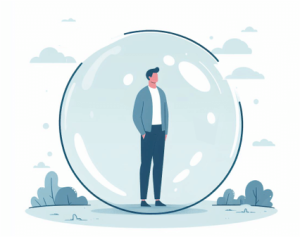Have you ever wondered why some people seem to effortlessly achieve their goals while others struggle to make progress? The secret might lie in their approach to discomfort. Let’s explore how embracing short-term discomfort can revolutionize your productivity and personal growth.
“Life begins at the end of your comfort zone.” – Neale Donald Walsch
This insightful quote from the author of “Conversations with God” encapsulates the transformative power of embracing discomfort. It suggests that true living – filled with growth, excitement, and fulfillment – starts when we step beyond the boundaries of what feels safe and familiar. By challenging ourselves and facing our fears head-on, we unlock a world of possibilities and personal development. Let’s explore how embracing short-term discomfort can catalyze remarkable changes in various aspects of your life:
1. Conquering Procrastination
Procrastination is often rooted in our aversion to discomfort. By shifting our mindset and diving into tasks without hesitation, we can dramatically increase our productivity.
Use the “5-Second Rule” introduced by Mel Robbins. Count backward from 5 to 1, then take immediate action. This technique bypasses your brain’s hesitation and propels you into action.
“If you have an instinct to act on a goal, you must physically move within 5 seconds or your brain will kill it.” – Mel Robbins, “The 5 Second Rule”

2. Take More Risks
Taking calculated risks is essential for personal and professional growth. When we overcome our fear of failure, we open ourselves to new experiences and opportunities. Start with small risks in your daily life. Order a dish you’ve never tried before, strike up a conversation with a stranger, or volunteer for a challenging project at work.

3. Building Resilience
Facing challenges head-on builds mental toughness and resilience. This mindset shift allows us to view obstacles as opportunities for growth rather than insurmountable barriers.
When you encounter a setback, take a moment to reflect on what you can learn from the experience. This practice turns failures into valuable lessons, fueling your progress.
“Resilience is not what happens to you. It’s how you react to, respond to, and recover from what happens to you.” – Jeffrey Gitomer

The Neuroscience of Discomfort
Understanding how short-term discomfort affects our brain can motivate us to leverage it more readily:
– Stress Response: Discomfort activates our body’s stress response, releasing hormones like cortisol and adrenaline. In moderate amounts, these hormones can enhance focus and performance.
– Neural Plasticity: Challenging ourselves promotes neuroplasticity, the brain’s ability to form new neural connections. This process is crucial for learning and adapting to new situations.
– Cognitive Enhancement: Regular exposure to short-term discomfort can improve cognitive functions like problem-solving, decision-making, and creativity.
Practical Strategies for Mastering Discomfort
– Set Micro-Challenges: Start each day with a small challenge that pushes you slightly out of your comfort zone. This could be as simple as taking a cold shower or striking up a conversation with a stranger.
– Practice Mindfulness: When facing discomfort, practice mindfulness to observe your thoughts and feelings without judgment. This can help you detach from negative emotions and push through challenges.
– Celebrate Small Wins: Acknowledge and celebrate each instance where you successfully face discomfort. This positive reinforcement will encourage you to continue pushing your boundaries.
– Visualize Success: Before tackling a challenging task, take a moment to visualize yourself completing it. This mental rehearsal can boost confidence and reduce anxiety.
Embracing short-term discomfort is not about seeking hardship for its own sake. It’s about recognizing that growth and achievement often lie just beyond our comfort zones. By cultivating a mindset that welcomes challenges, you’ll unlock your full potential and achieve things you never thought possible.




